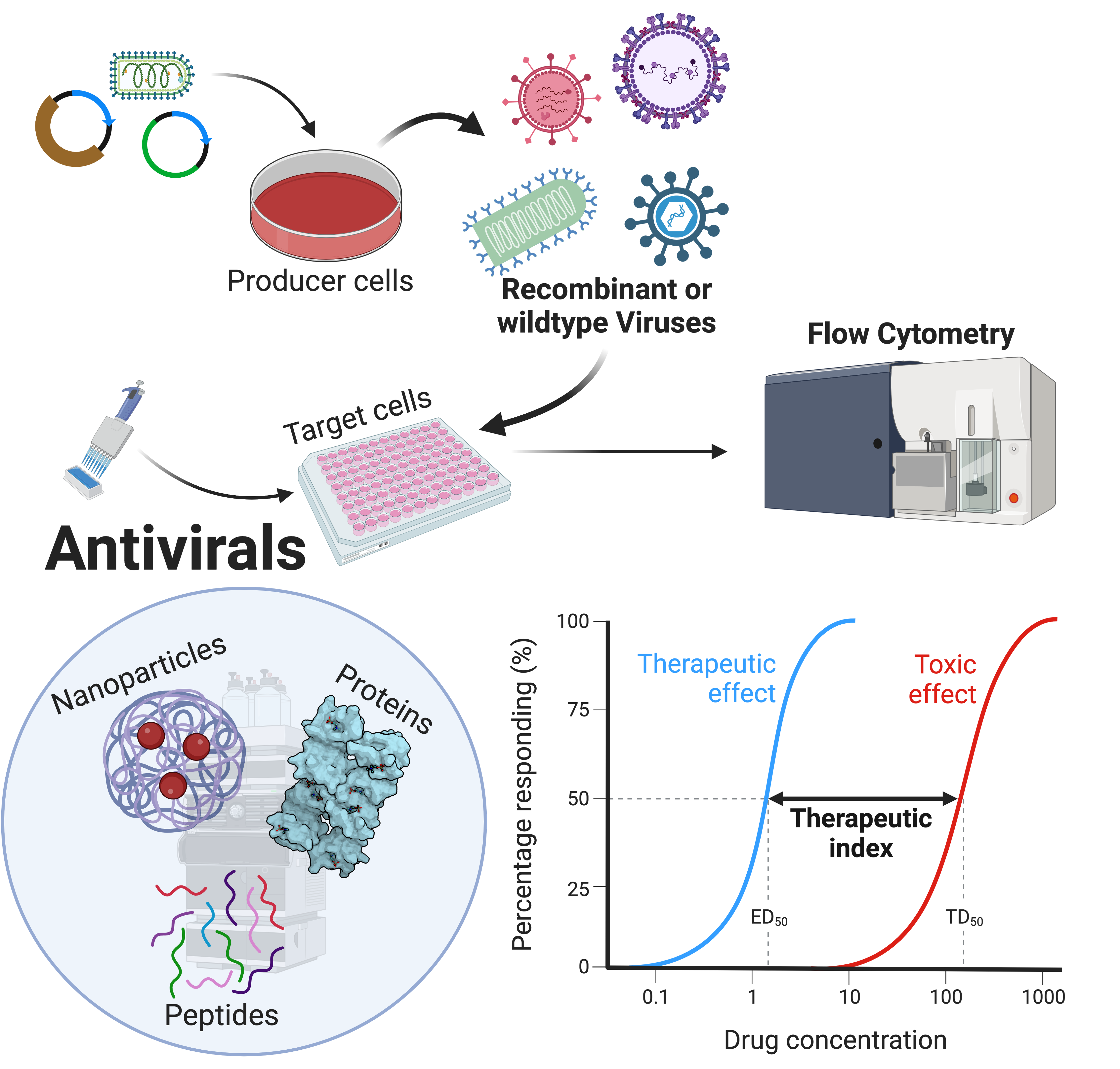Antivirals Research
The importance to develop novel and better antivirals cannot be overstated, especially in light of recent severe, local outbreaks of virus epidemics (i.e. caused by Ebola virus) or the recent global pandemic threats, posed by i.e. Influenza viruses or SARS-CoV-2. Traditional treatments often fall short in curbing infections in individual patients or larger human populations, leaving us in dire need of new, innovative therapeutic strategies.
Our lab seeks to actively contribute to this line of research. We take an interdisciplinary approach, cooperating with different academic institutions and scientific groups. Our collaboration partners include the polish academy of sciences, the institute for zoo and wildlife research, the Humboldt University and the Technical University Bingen. Our research spans various viral families, and we seek to contribute to the development of both, virus specific, but also pan-antiviral treatments. Furthermore we are interested in the investigation of the mechanisms of viral drug resistance, and evasion, as well as host-dependent therapy failure.

Research Statement: In recent month we have contributed to the development of a novel bi-specific SARS-CoV2 antibodies and better nanoparticle formulations of antiretroviral drugs. Moreover, together with our collaborators in Berlin we have discovered that the bovine seminal plasma protein PDC-109 exhibits pan-antiviral activity.
We are currently engaged in a comprehensive characterization of the molecular mechanisms of PDC-109’s surprising antiviral function. In addition, we are actively investigating further, potentially superior nanoparticle and nanofiber architectures with our colleagues in Poland and India. Finally, we are testing natural compounds isolated from fungi for their general bioactivity and potential applications as new therapeutic agents against viral infections.

